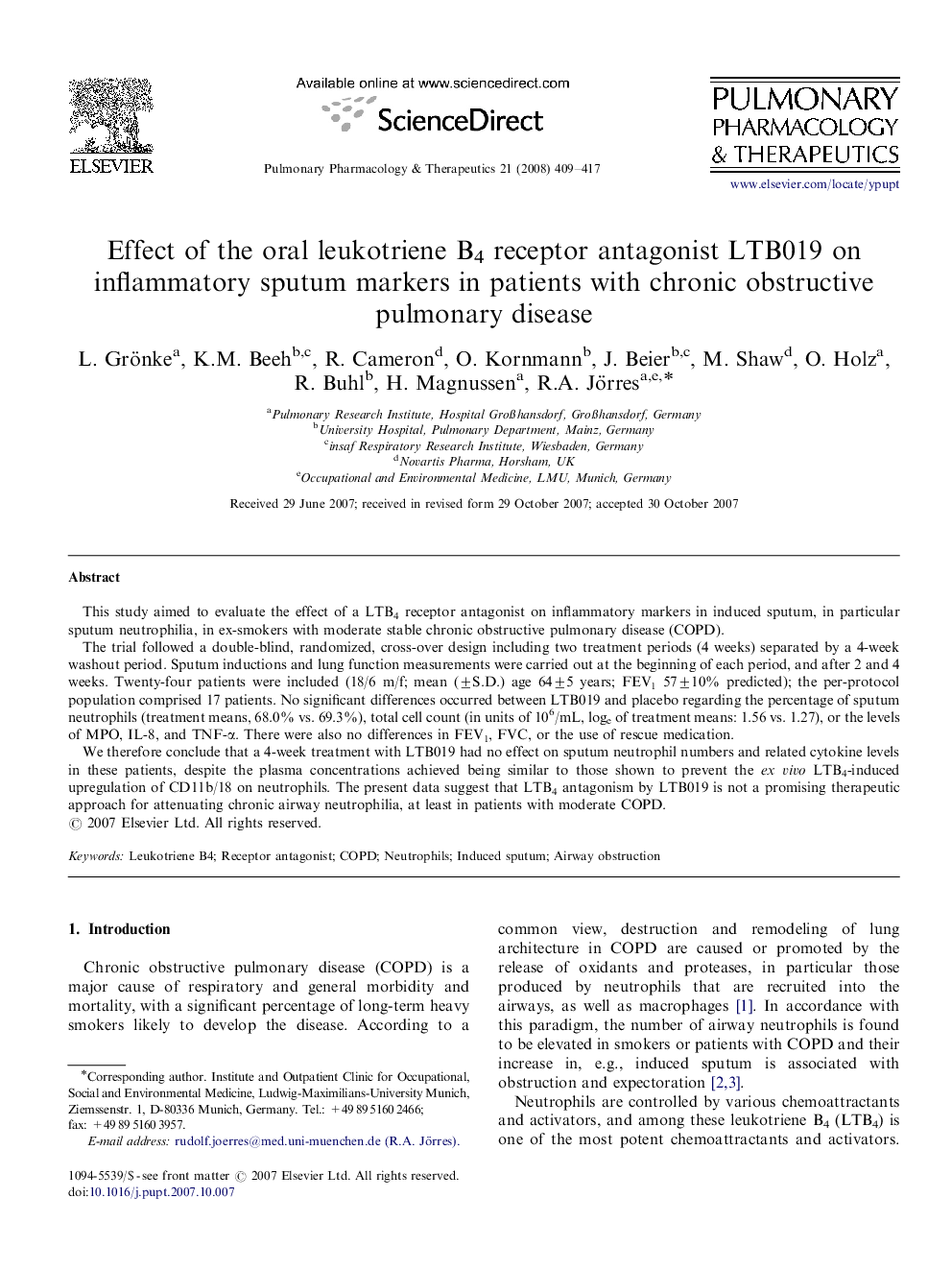| Article ID | Journal | Published Year | Pages | File Type |
|---|---|---|---|---|
| 2567820 | Pulmonary Pharmacology & Therapeutics | 2008 | 9 Pages |
This study aimed to evaluate the effect of a LTB4 receptor antagonist on inflammatory markers in induced sputum, in particular sputum neutrophilia, in ex-smokers with moderate stable chronic obstructive pulmonary disease (COPD).The trial followed a double-blind, randomized, cross-over design including two treatment periods (4 weeks) separated by a 4-week washout period. Sputum inductions and lung function measurements were carried out at the beginning of each period, and after 2 and 4 weeks. Twenty-four patients were included (18/6 m/f; mean (±S.D.) age 64±5 years; FEV1 57±10% predicted); the per-protocol population comprised 17 patients. No significant differences occurred between LTB019 and placebo regarding the percentage of sputum neutrophils (treatment means, 68.0% vs. 69.3%), total cell count (in units of 106/mL, loge of treatment means: 1.56 vs. 1.27), or the levels of MPO, IL-8, and TNF-α. There were also no differences in FEV1, FVC, or the use of rescue medication.We therefore conclude that a 4-week treatment with LTB019 had no effect on sputum neutrophil numbers and related cytokine levels in these patients, despite the plasma concentrations achieved being similar to those shown to prevent the ex vivo LTB4-induced upregulation of CD11b/18 on neutrophils. The present data suggest that LTB4 antagonism by LTB019 is not a promising therapeutic approach for attenuating chronic airway neutrophilia, at least in patients with moderate COPD.
